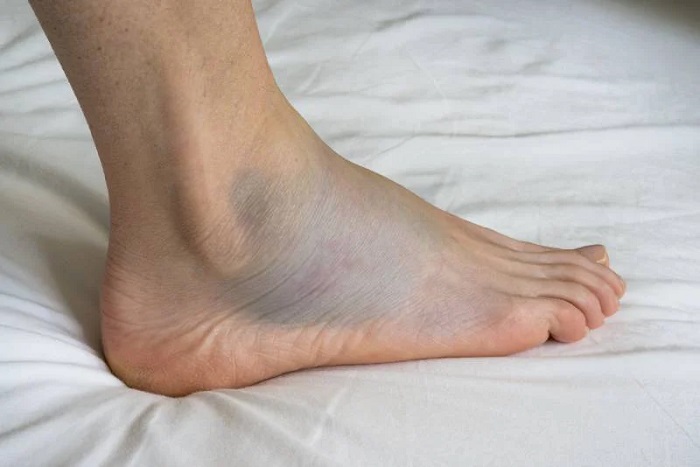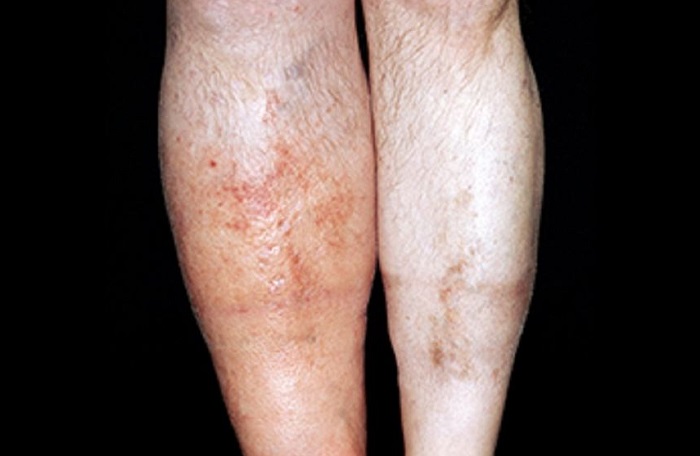


Most blood clots in the legs aren’t as serious as they sound in most cases, but they can be dangerous if they aren’t treated. This condition is called venous insufficiency. Blood clots are more likely to happen as you get older, and they often happen to women who have been recently pregnant. What happens is that the walls of the veins in the legs start to weaken, which hurts the one-way valves that lead to the heart. This makes the veins in the legs fill up with blood, which happens even more if you’ve been standing for a long time.
Keeping your legs up when you sit, lie down, or sleep can help reduce swelling and prevent the problem from worsening. You can also buy support stockings, but make sure they aren’t too tight to leave marks. You can also get compression stockings on prescription if you really need them. Talk to a doctor or physician about your options.

Img Src: pstatic.ne
Pitting edema is a condition which results in water retention that makes the legs, face, and hands swell up. This kind of swelling is caused by liver or kidney problems. Symptoms are often at their worst when you wake up in the morning. This is a very serious and possibly dangerous matter. It can make protein leak out of your blood and into your urine. This lowers the amount of protein in your body, which causes fluid buildup. Suppose you think problems with your kidneys or liver cause your edema and swollen legs. In that case, you should see a doctor immediately. If you don’t get it treated soon, it could lead to more problems in the future.
Img Src: shopify.com
A foot, ankle, or lower leg infection can cause the area to swell up. A skin infection that often affects the lower limbs is called cellulitis. When a person has diabetes, their feet are more likely to swell up as a symptom of this disease. It’s necessary to check the feet often for cuts, scrapes, and bruises.
How you treat an infection in your foot, ankle, or leg depends on what kind of infection it is and how bad it is. A doctor usually gives antibiotics when bacteria cause the infection. If the infection has led to gangrene, the damaged area may need to be amputated.
Img Src: i-scmp.com
During the PMS (or premenstrual syndrome) phase of the cycle, which happens about a week before a period, many women with periods experience bloating and swelling. When a woman has PMS, it’s not unusual for her to get swollen legs. This is also a problem for women who are pregnant. Even though PMS and pregnancy are very different, we’re putting them together here because the treatment for both is the same.
Warm parsley tea is an effective remedy for swollen legs during pregnancy or PMS that not many people know about. To make this refreshing drink, chop the leaves and roots of parsley into small pieces and put about a quarter cup of these pieces into an infusion basket. Put this in a teapot with hot water that has been boiled, or pour hot water that has been boiled over the parsley. Let it steep for five to seven minutes, then take out the infusion basket and strain the drink. You can add to the taste by adding lemon, ginger, or even honey.
Img Src: youmed.vn